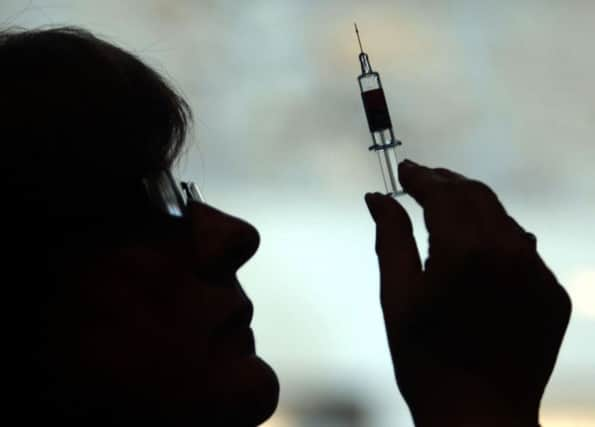Q&A: NHS rolls out meningitis jab for babies


The meningitis B jab is being offered on the NHS for infants aged two months, followed by a second dose at four months and a booster at 12 months. There will also be a temporary catch-up programme for babies who are due their three and four-month vaccinations throughout September.
The scheme, which has been delayed by cost disputes, is the first national and publicly-funded programme against the infection in the world.
• What is meningitis?
Advertisement
Hide AdAdvertisement
Hide AdMeningitis is a deadly infection of the meninges - the protective membranes surrounding the brain and spinal cord.
It can be passed on through close contact. Babies and young children are most vulnerable.
Symptoms include a high fever with cold hands and feet, being agitated or not wanting to be picked up, confusion, vomiting and headaches.
Some babies become drowsy, floppy and unresponsive, grunt or breathe rapidly and have an unusual high-pitched or moaning cry.
Advertisement
Hide AdAdvertisement
Hide AdA red rash that does not fade when a glass is rolled over it is another sign, although not everybody develops this.
• How many people are affected?
Figures suggest that around 1,200 people suffer from meningitis B every year, with about one in 10 dying from the infection and many more left with disabilities.
In 2011/12, there were around 2,350 cases overall of bacterial meningitis and septicaemia in the UK.
There are two vaccines against other types of meningitis. The meningitis ACWY vaccine is currently being offered to 17 and 18-year-olds and first-time university students, while the meningitis C vaccine is given to babies as part of routine childhood immunisations.
• Is the new vaccine safe?
Advertisement
Hide AdAdvertisement
Hide AdAccording to the NHS, almost 8,000 people, including more than 5,000 babies and toddlers, have been given the vaccine during clinical trials, with no safety concerns.
Babies can develop a fever within the first 24 hours after vaccination and other common side effects include irritability.
Public Health England has urged parents to give their babies liquid paracetamol at the time of injection to help reduce the risk of a fever.
The vaccine will be given to babies aged two months, followed by a second dose at four months and a booster at 12 months.
• Why has it taken so long to be introduced?
Advertisement
Hide AdAdvertisement
Hide AdCost negotiations between the vaccine’s manufacturer, GlaxoSmithKline (GSK), and the Government led to delays in introducing the vaccine.
The Joint Committee on Vaccination and Immunisation (JCVI), which advises the Government on vaccination, published a statement in summer 2013 saying the vaccine was unlikely to be cost-effective at any price.
But, following intense campaigning, the JCVI announced in March 2014 that the vaccine should be introduced.
A further year of talks on cost took place before the Government announced in March this year that the vaccine would go ahead.
The vaccine is also available privately for parents who want to vaccinate older children.
ends